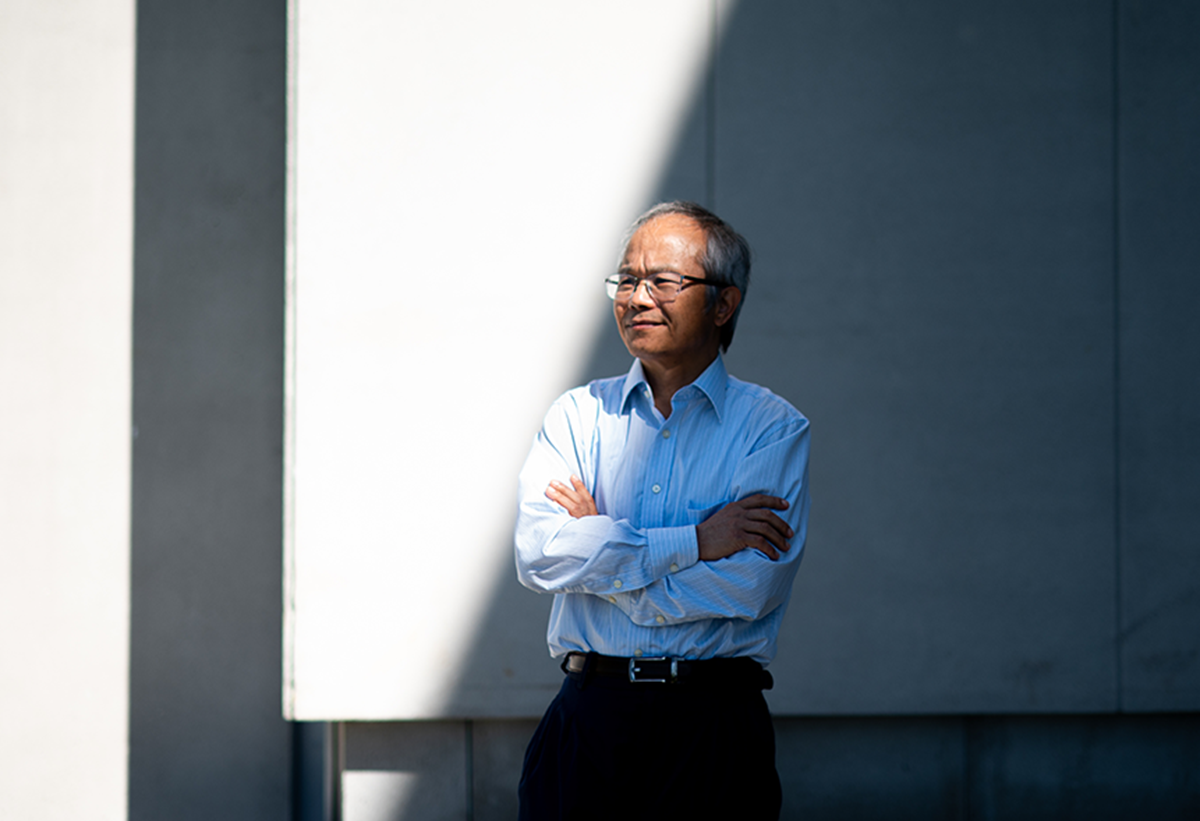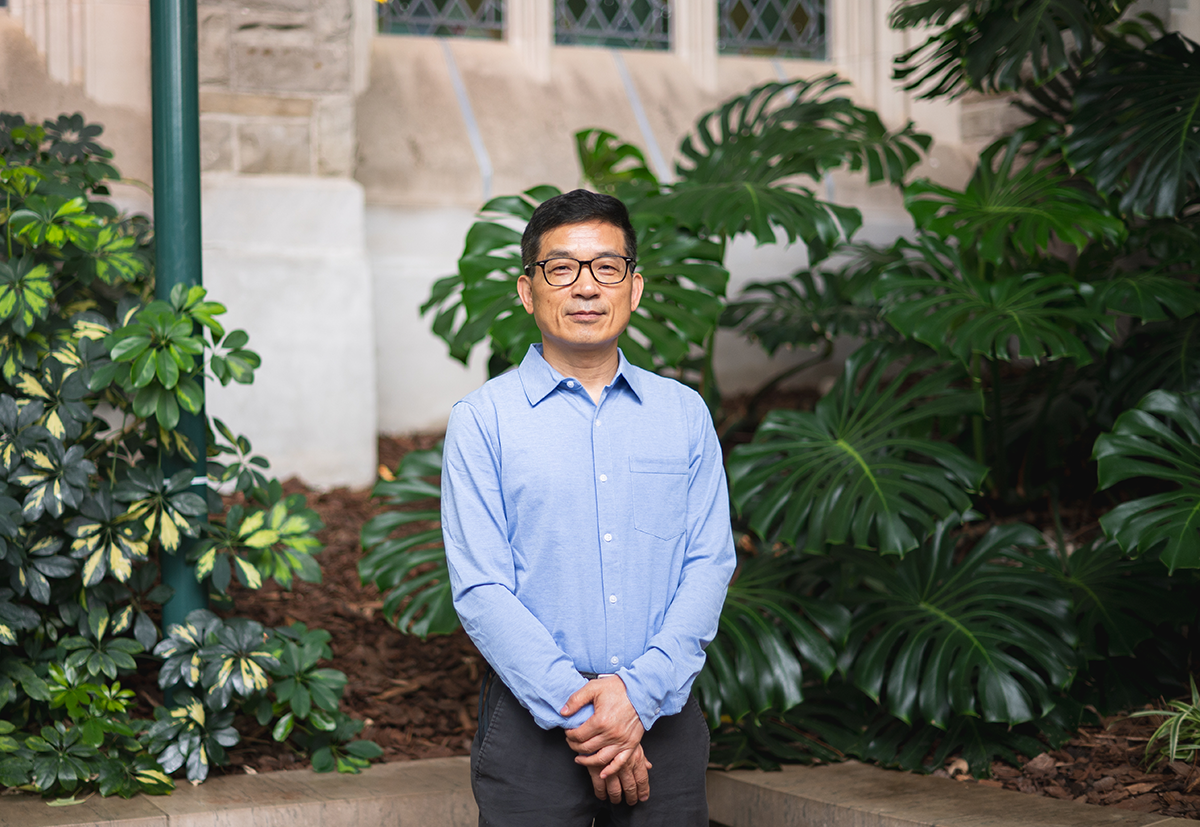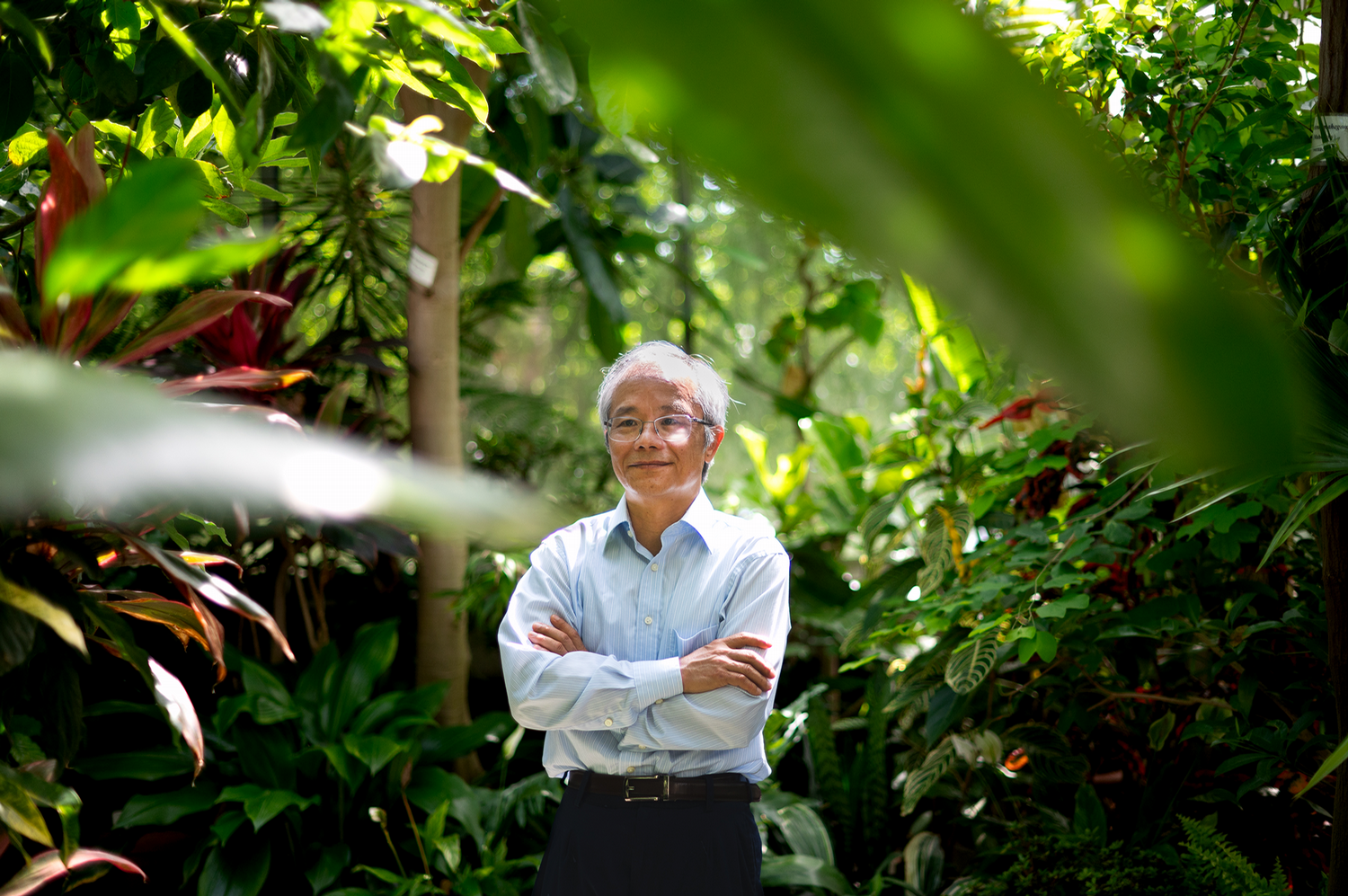The latest iPhone compared to a 1950s party line. A seven-course meal tailored to your unique taste and dietary needs versus a drive-through burger. Music streaming in comparison to a cassette tape. This is the promise of biotherapeutics – tailored therapies that harness the body’s natural ability to fight disease – compared to conventional small molecule drugs.
And it’s an approach Schulich School of Medicine & Dentistry is betting big on as it moves forward establishing a new centre for biotherapeutics, backed by more than $9 million in support from senior levels of government.
“Our goal is to identify disease targets earlier and develop first-in-class, personalized biotherapeutic treatments right here in London,” said Dr. Kun Ping Lu, a professor of Biochemistry and Oncology who is leading the charge with colleague Shawn Li, PhD.
While biotherapeutics are not ‘new’ – the most famous early example is insulin, a pancreas-made hormone with strong ties to Western University – in the past decade, these “living drugs” that use information about a person’s own genes or proteins to prevent, diagnose and treat disease have exploded in popularity.
Today, approximately 50 per cent of all newly approved drugs are biotherapeutics, which are typically made up of large, complex molecules from living cells or micro-organisms that can bind to targets with astounding precision.

“The transformational power of precision medicine is just beginning. And we have the tools, technology and talent to really stake a flag in the sand here.”
- Dr. Kun Ping Lu, Professor of Biochemistry and Oncology, Western Research Chair in Biotherapeutics
In the past year, news headlines have lauded the transformational power of this new class of therapies, from CAR-T immunotherapy altering immune cells to destroy cancer to sickle cell disease being extinguished with CRISPR gene editing. For Lu – who holds a Western Research Chair in Biotherapeutics – this is just the tip of the iceberg.
“The transformational power of precision medicine is just beginning,” he said. “And we have the tools, technology and talent to really stake a flag in the sand here.”
Lu himself is renowned for the ground-breaking discovery of a stress response enzyme, Pin1, whose expression is linked to Alzheimer’s, traumatic brain injury, stroke, pre-eclampsia and cancer. An antibody developed with his research partner, Dr. Xiao Zhen Zhou, is currently undergoing clinical trials in traumatic brain injury and Alzheimer’s patients. They have also discovered Pin1 inhibitors that can render aggressive pancreatic cancer curable in pre-clinical models and expect to launch clinical trials in humans soon.
Li, meanwhile, is focused on understanding cancer’s molecular and epigenetic basis with the goal of developing protein- and peptide-based agents to help diagnose and treat the diseas
And colleagues across the School are on the leading edge of harnessing the body’s natural ability to fight illness, from using fecal transplants to treat melanoma to employing biological molecules to create vaccines.
Li, a professor of Biochemistry and Canada Research Chair in Molecular and Epigenetic Basis of Cancer, said the School’s research bench strength – combined with two new state-of-the-art facilities that are in the planning phase – is a recipe for success.

“Not only will we be able to help a lot more people live healthier lives, we can also help Canada become more globally competitive by translating novel biotherapeutics from the lab to the market.”
- Shawn Li, PhD, Professor of Biochemistry and Canada Research, Chair in Molecular and Epigenetic Basis of Cancer
The School’s soon-to-be-built Pathogen Research Centre will include a GMPro manufacturing facility for producing small-batch therapeutics and the planned construction of a multi-disciplinary Bioconvergence Centre will empower researchers to work together to identify novel targets and take discoveries to clinical trials and beyond, he said.
“Not only will we be able to help a lot more people live healthier lives, we can also help Canada become more globally competitive by translating novel biotherapeutics from the lab to the market,” he said.













